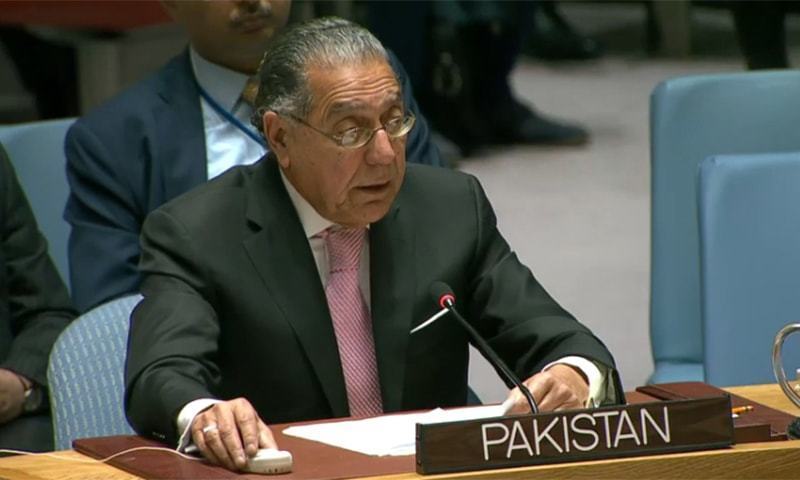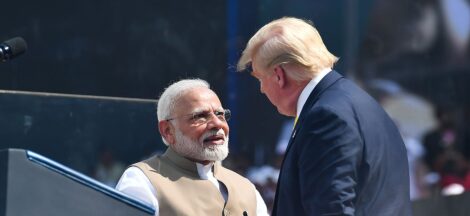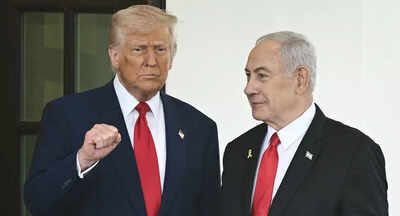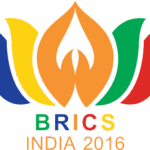Pakistan has assumed the rotating Presidency of the UN Security Council for July, marking a visible diplomatic gain amid growing tensions with India. As part of its two‑year non‑permanent membership that began in January 2025, Pakistan holds the presidency in alphabetical sequence alongside key roles such as chairing the Taliban Sanctions Committee and serving as vice‑chair of the UN Counter‑Terrorism Committee.
Congress has sharply criticised the government, stating it “failed to prevent Pakistan from assuming key positions in the UN,” and describing the development as a “major diplomatic failure”. Party spokesperson Randeep Singh Surjewala condemned the elevation of “a terror state” to such prominent UN roles and challenged the government’s foreign‑policy approach, pointing to what he termed a lack of strategic manoeuvring on the international stage.
Diplomatic analysts note that Pakistan’s broad-based support in the UN General Assembly—garnering 182 out of 193 votes—reflects successful global engagement. Its presidency includes hosting a high-level debate on multilateral dispute resolution on 22 July and a briefing on cooperation between the UN and regional organisations like the Organisation of Islamic Cooperation on 24 July. Outgoing President Asim Iftikhar Ahmad has signalled a focus on “peaceful settlement of disputes” and is expected to spotlight the implementation of UN‑Charter Chapter VI tools.
The timing has invited critique in India, particularly given ongoing fallout from the Pahalgam terror attack on 22 April, widely linked to Pakistan, which triggered Operation Sindoor in retaliation. Congress has accused the government of diplomatic inertia, highlighting a perceived silencing as Pakistan advanced within the UN framework. Critics also reference earlier blocks by Pakistan and its allies of India’s proposal to list Abdul Rauf—a figure accused of anti‑India terror—as a global terrorist within the UN Counter‑Terrorism Committee.
Pakistan’s presidency is seen as more than symbolic. According to satellite reporting, its leadership of the Taliban Sanctions Committee and the Counter‑Terrorism Committee is viewed as formal recognition of its UN diplomacy in action. PassBlue reports that Pakistan is poised to revive debate on the relevance of Chapter VI, seeking to address what it terms the UN’s “creeping irrelevance” and urging stronger enforcement of binding Security Council resolutions.
While Pakistan asserts non‑partisanship, national rhetoric remains charged. The prime minister’s office welcomed the presidency, portraying it as global validation of its diplomatic stature. China’s influence within both the Shanghai Cooperation Organisation and UN blocs, combined with diplomatic overtures from nations like the US to Pakistan’s military leadership, have intensified debates around regional influence.
India, meanwhile, continues to urge a firmer international stance against terrorism. It refused to sign a joint statement at a recent Shanghai Cooperation Organisation defence ministers’ summit over its overtly pro‑Pakistan tone, stressing the need for clear reference to terror incidents such as the Pahalgam attack. New Delhi has also taken measures including suspending the Indus Waters Treaty, closing its airspace, cancelling visas, and expelling diplomats in response to perceived Pakistani-sponsored cross‑border militancy.
Experts observe that Pakistan’s presidency offers it a diplomatic platform, but execution of any resolutions depends on its ability to build consensus among members, including the Council’s permanent five. Observers note that while the presidency allows for agenda‑setting, actual enforcement of measures targeting terrorism or regional conflicts requires buy‑in from major powers. In the coming weeks, Pakistan’s proposed forum on dispute settlement and cooperation with regional organisations will serve as a litmus test of its influence and India’s capacity to engage or counterbalance diplomatically.
Pakistan Takes Over UN Security Council Presidency – Explained




 India Opts Out of BRICS Currency Push
India Opts Out of BRICS Currency Push 